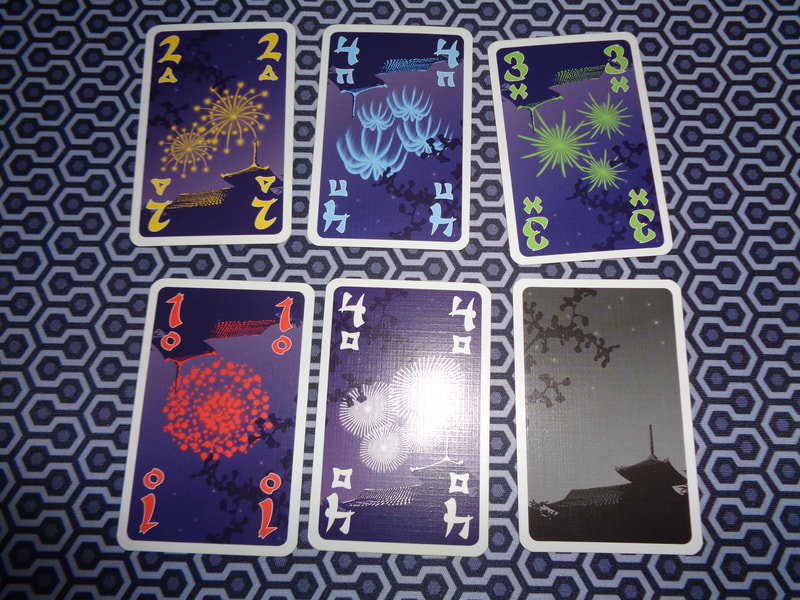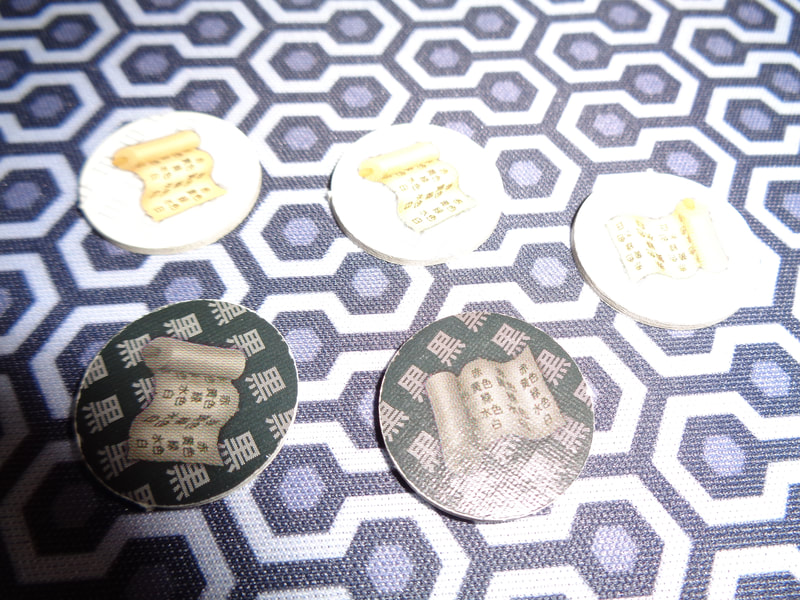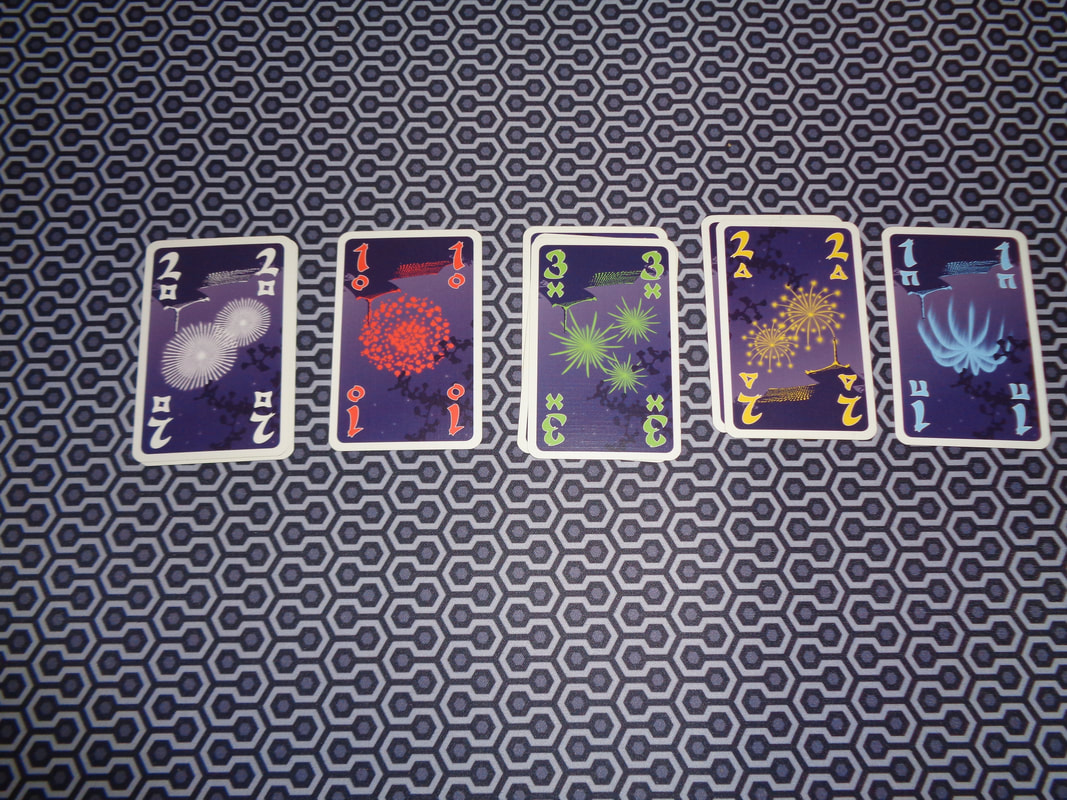|
20th March 2022 It's a Sunday and we're logged into Board Game Arena for an evening of fun. Hanabi is a cooperative game about lighting a series of larger and larger firework displays. The catch is that everyone must rely on other players to give them clues to do so. Get it wrong though and the show could end early. Who thought fireworks could be so stressful, well... other than pets! What's in a game?
All the artwork on the cards are understandably themed after fireworks in their respective colours. For the most part it looks clear but I've found that in dimmer light, the colours can look a little weak. Hanabi makes minimal use of iconography, the cards are cleared numbered while icons are also used to designate different colours. 2 symbols are used on tokens. How's it play? Setup
On to play The objective in Hanabi is to create a stack of face-up cards for each colour by playing them in numeric order, starting with the 1 and finishing with the 5. All of this must be done without any player looking at their own cards. Players should hold their cards up with the backs facing them so that all others can see what cards they have. Players then provide clues to each other and use these clues to deduct which cards to play. Hanabi uses a standard turn structure with the active player taking a turn before play progresses to the left. The active player must perform one of the following actions.
Endgame Play continues until 1 of the following 3 criteria are met. Win: If the 5th card of all 5 stacks are correctly played, the players immediately win the game. They have achieved a perfect score of 25. Lose: If the 3rd and final storm token is flipped over, the players immediately lose, scoring a big fat 0! Deck depletion: If play progresses until the last card is drawn from the deck, all players get one more turn. After this, the game is scored and the players collectively gain a score equal to the value of the top card on each stack, thus the maximum score of a incomplete game is 24. Overall
One of the things I like about Hanabi is that it's a small, fairly easy to learn cooperative game that provides a solid challenge, it has a reasonably quick playing time and would work well as a filler game. What's interesting in my opinion are the mechanics for clues and also clue tokens as they are inextricably linked. The game does a good job of balancing the usefulness of clues with their scarcity. When giving clues, players will want and need to give clues as efficiently as possible, it takes 2 clues to clearly define what a card (Both colour & number.) is and this uses a quarter of the available clues which is a lot! Frequently that means a clue might need to have a implicit meaning attached. E.g.; the clue, "You have one green," might implicitly mean 'Play that green card!' Players receiving clues will need to interpret and deduct meaning from the information they have now been given, combining it with the information they see in other players' hands before deciding what to do. Sometimes they won't have all the information they want, sometimes they'll need to gamble on a decision. Flipping clue tokens back to their unused side can be vital to doing well, usually this will involve discarding cards and it also allows players to draw cards and put new options into play. Blindly discarding cards can be tricky though, if a 5 is discarded, there goes the chance to get a perfect score. - Not that getting a perfect score is easy, it's not! Consequently, it's sometimes a good idea to give players clues about what to get rid off. not keep. It should also be noted that like many cooperative games, luck can play a big role in Hanabi. If those lower value cards don't until later in the game, players will end up discarding higher value cards to get to them. Hanabi does have some minor drawbacks though. Having to constantly hold up cards so others can see them feels a like a little bit of a pain. The same is true of drawing new cards and remembering not to look at them. When a player is given clues about their cards, it can be a chore to remember not only what the clues are but also the location of those cards in their hand. Otherwise that can lead to some pretty devastating plays! Interestingly, the digital version of Hanabi remembers the clues for players. I also found Hanabi to be slightly frustrating, although this may be due to the behaviour of other players. It's definitely stressful watching another player not get the hint when they've given a clue. These are minor quibbles and Hanabi is a unusual and challenging cooperative game that forces players to think hard and logically, provides meaningful decisions and some solid fun: Some big gameplay delivered in a small package. Hanabi is definitely worth trying.
0 Comments
Leave a Reply. |
AuthorI play, I paint. Archives
March 2024
Categories
All
|






 RSS Feed
RSS Feed
